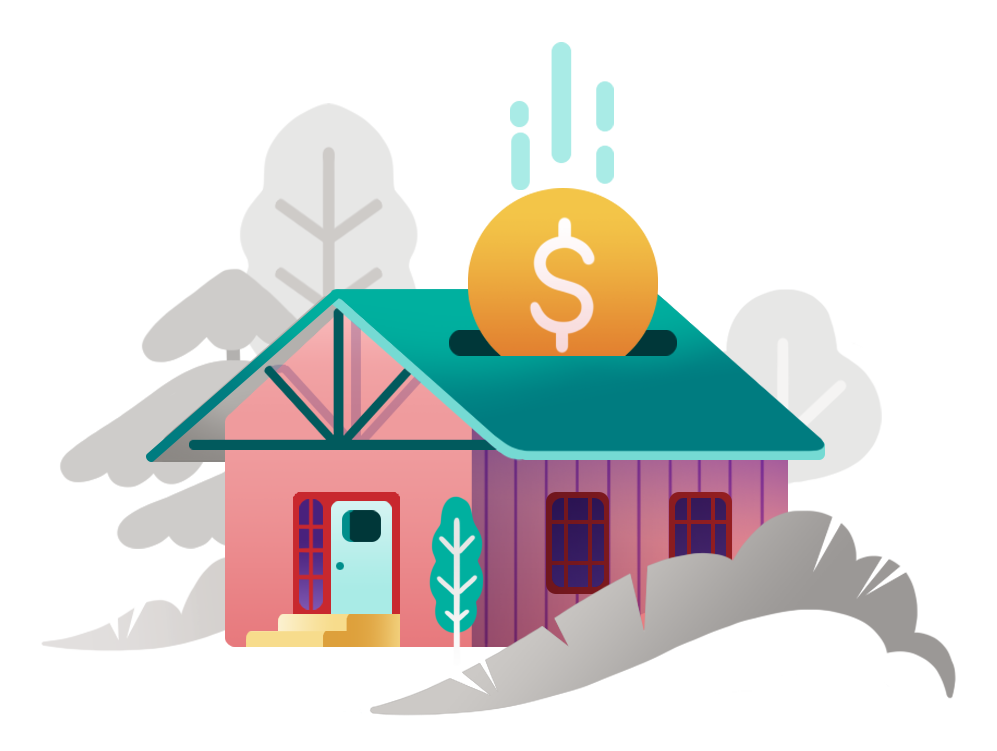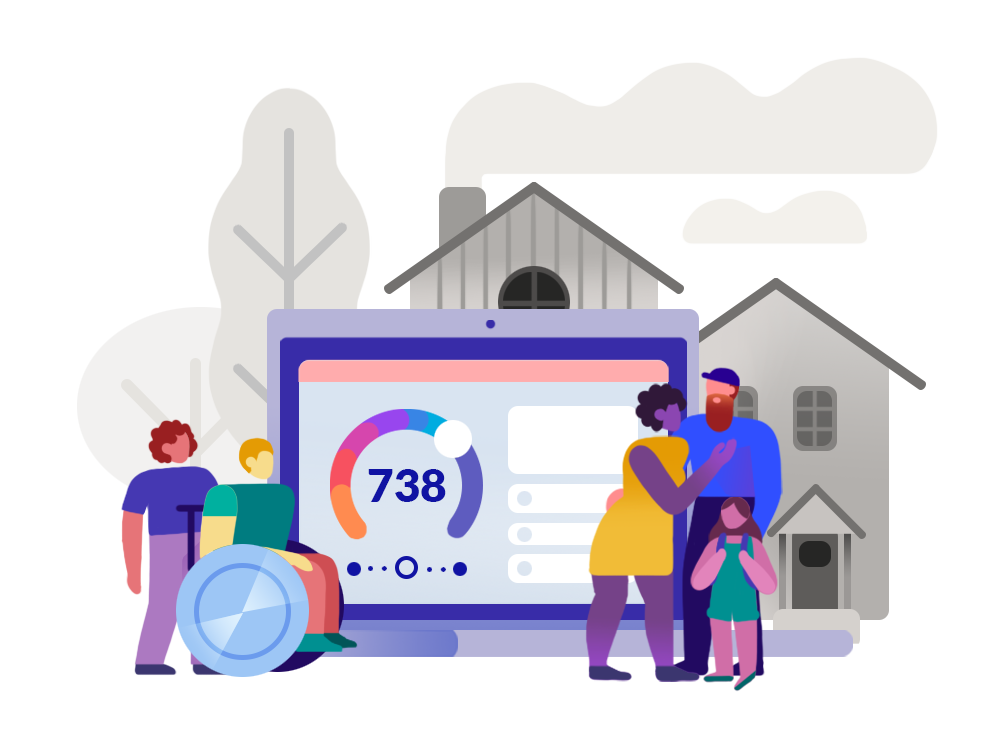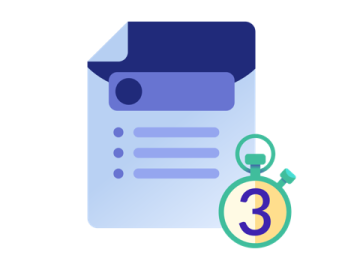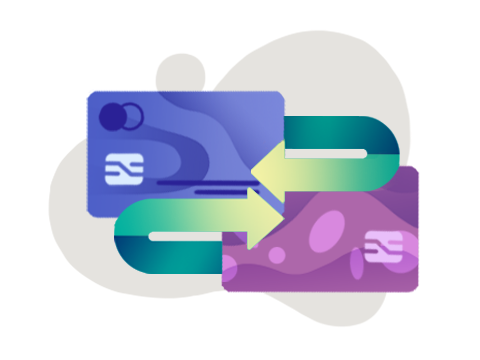If you’re wondering, “What is a credit score, anyway?” – don’t worry! We’ve got you covered.
The Borrowell Team
Jul 04, 2025
Learn More
Your credit score plays a big part in your ability to get favourable mortgage rates. Whether you're a first-time home buyer or looking to refinance your existing loan, you can access your free credit report, get tips to help you improve your score and easily compare mortgages across Canada.
Your credit score is mix of different factors that demonstrate your ability to borrow and manage credit. If you're looking to buy your first property or refinance an existing loan, a good credit score can help you get better rates and qualify for a greater number of mortgage products. Check and monitor your credit score for free (it takes less than 3 minutes). We'll update your credit score and report every single week. If you need to improve, you can get personalized tips based on your profile, track your progress and manage your monthly payments.
You can quickly compare rates on a wide range of financial products and see your likelihood of approval based on your credit profile. If you're looking to get a new mortgage, refinance or reduce your monthly payments, you can explore options from personal loans, lines of credit, credit cards and debt consolidation.
In addition to helping monitor and improve your credit, you can also get a variety of tools to help you gain more visibility and manage your finances. Access calculators, new features and fresh content monthly to help you understand mortgage topics, including pricing, deferrals and budgeting.
Sign up to get your free credit score and weekly updates to improve your score and chances of mortgage approval.
Our Mortgage Coach will use your credit profile and ask a few simple questions to find and compare mortgage rates from 50+ lenders.
Discuss your best rates with an experienced mortgage professional who can guide you through the process.
Easily see if payment deferrals have been correctly reported to Equifax in your payment calendar, without having to contact your lender.
A mortgage rate is the interest rate you'll pay on the money you use to purchase your home. It is usually expressed as an APR, or annual percentage rate, which is the interest rate for the entire year, even though it may be charged monthly or daily.
Yes, your credit score affects your ability to obtain a mortgage. If you have an ‘excellent credit score’, you'll have access to traditional lenders (like banks and credit unions) and the best mortgage rates. If you have a ‘good credit score’, you'll have access to most conventional lenders and reasonable interest rates. If you have a ‘poor credit score’, you may not be able to obtain a mortgage from traditional, high-quality lenders. Find out more about the different factors that impact your credit score.
Applying for a mortgage requires a hard check on your credit score. This type of check does negatively affect your credit score, and applying for multiple mortgages through different lenders can be a red flag that you are attempting to take on more debt than you can handle. To avoid this, research your possible lenders first and determine which one you want to use and just submit one application. Alternatively, you could use a mortgage broker, who will only perform one hard credit check on your application and shop around for the best lender with the lowest rate.
You can get a mortgage in Canada through a few sources. You can go directly to a bank or credit union and apply for a mortgage. You could also opt to use a mortgage broker, who will take your relevant financial details and shop around for the best mortgage rate on your behalf. After you submit your application, you'll be pre-approved by your lender for a mortgage rate and maximum purchase price. Preapprovals usually lock in your mortgage rate for 60 to 90 days. After you place an offer on a home, you'll submit the additional documentation required to finalize your mortgage approval and transfer the funds to secure your home purchase.
Lenders want to see few, or no blemishes on your credit report. One missed payment is okay, but if you have frequent occurrences or delinquencies you may need to invest in building up your credit report before applying. According to Equifax, lenders generally see credit scores of 660 and higher as lower-risk borrowers. Like everything else, there are always exceptions, but the higher your score at application the greater the likelihood of getting favourable rates.
Your debt ratio is your ability to manage your monthly expenses relative to your gross income. If your monthly payment obligations (ie. mortgage amount, property taxes, utilities, condo fees, car payments) are more than 44% of your gross monthly income, you could struggle to get favourable offers. You will also need to pass the federally mandated ‘Stress Test,’ which means your ratio will be calculated at inflated rates to ensure you can still make your mortgage payments if interest rates eventually increase.
A mortgage broker or lender might ask you to prove your full income with tax documents and/or employer pay stubs. Typically, you will need at least one year of employment history, and a two-year history of any bonus income, commissions or part-time income.
But again, there are exceptions for those who aren’t traditionally salaried or have recently started a new job.
There are two credit reporting bureaus in Canada, Equifax, and Transunion. Mortgage lenders will use credit scores from both bureaus to determine whether you are a good candidate for a mortgage.
Your credit score is a number between 300-900. Anything above 700 shows that you have managed your money well and are a good candidate for a mortgage. A score between 600-700 means that you are slightly risky, and the rest of your application should be strong to offset the lower score. A score below 600 means you could be considered a risky borrower and will require higher interest rates or alternative lenders.
You can easily compare mortgages by using an online comparison website. These websites pull mortgage rates directly from lenders and are always up to date. If you'd prefer a more customized approach to your mortgage comparisons, you can choose to work with a mortgage broker.
Your mortgage term is the period that your mortgage rate is locked in. For example, if you obtain a 5-year fixed-rate mortgage at 2.29%, your mortgage rate would stay at 2.29% for the full five years, no matter what happens in the marketplace. A variable rate mortgage will fluctuate with the prime rate over your term, but it's relation to the prime rate (for example, Prime – 0.45%) will stay the same for the entire term.
Mortgage terms vary in length. You can choose a term as short as six months, or as long as ten years, but five years is the most common option. When selecting a term, keep in mind that breaking the term early can result in penalties and fees, so try and choose a term that makes sense for your situation. For example, if you plan to be in the home for more than five years, choose a five-year term. If there is a good chance you or your partner have to relocate for work, a shorter term will have lower penalties if you have to break your mortgage term early.
At the end of your mortgage term, you'll renew your mortgage with a new interest rate and new term.
A mortgage amortization period is the total length of time that you'll pay down your mortgage. A typical amortization period is between 25 and 30 years, but you can choose a shorter amortization period, for example, ten years. Keep in mind that the shorter your amortization period, the higher your monthly payment, as the loan is being paid off over a shorter period.
Contrary to what you might think, a larger down payment doesn't always equate to a lower mortgage rate. When you apply for a mortgage with a down payment of less than 20%, it's called a high ratio mortgage, and must be insured with mortgage default insurance. This insurance protects the lender in case you default on your mortgage payments. This insurance makes mortgages with a down payment of less than 20% inherently less risky. As a result, your lender is able to offer very competitive interest rates, even if you have a smaller down payment.
If you’re wondering, “What is a credit score, anyway?” – don’t worry! We’ve got you covered.
The Borrowell Team
Jul 04, 2025
Learn More
Here are eight tangible steps you can take to improve your credit score. Your credit score directly impacts your ability to get approved for financing, including credit cards, loans and mortgages.
The Borrowell Team
Nov 28, 2025
Learn More
Your credit report paints a picture of how financially responsible you are. You should regularly review your credit report, as lenders look at your report before approving you for credit products. Reading your credit report can be overwhelming and confusing, but it doesn’t have to be! Here’s a clear breakdown of how to read your credit report, including what information is in it, what this information means, and how long this information stays on your report for.
Evan Miersch
Jan 08, 2021
Read more









